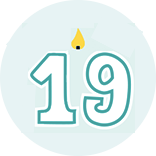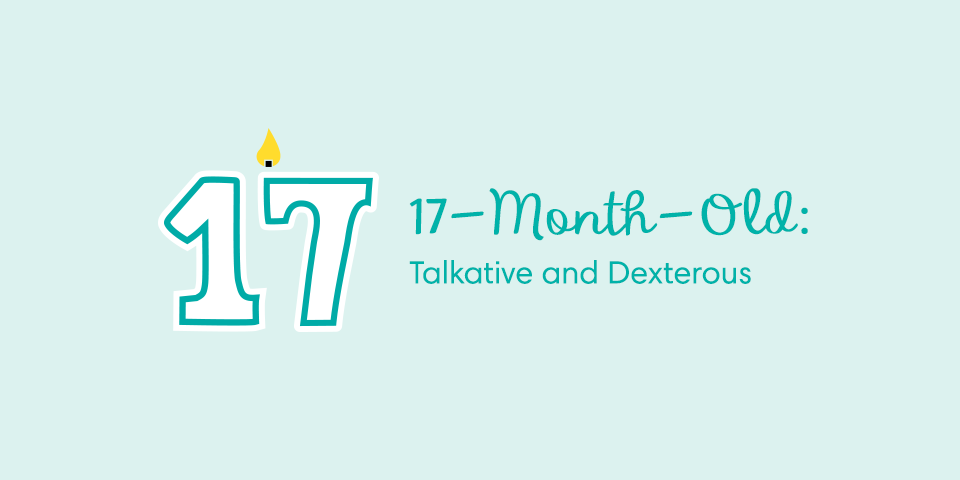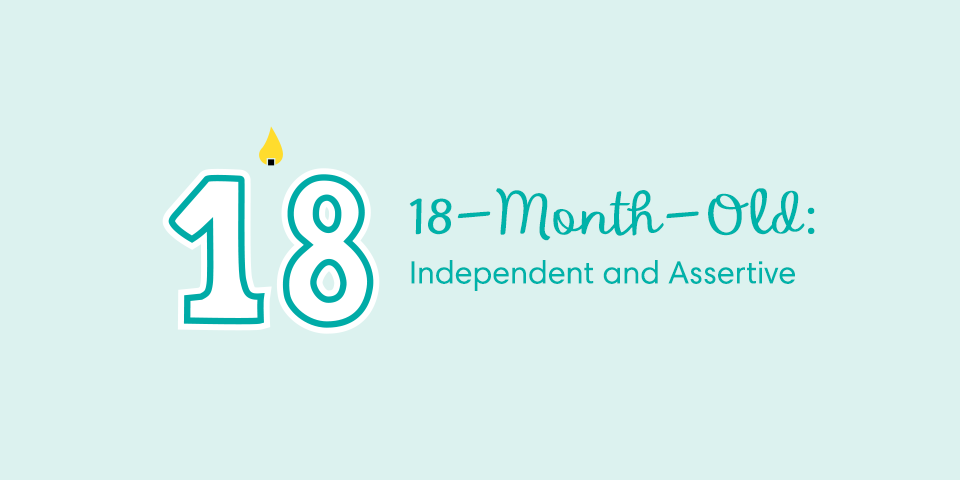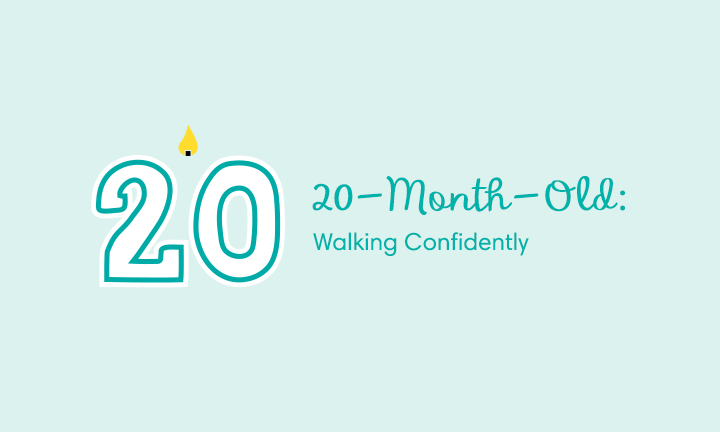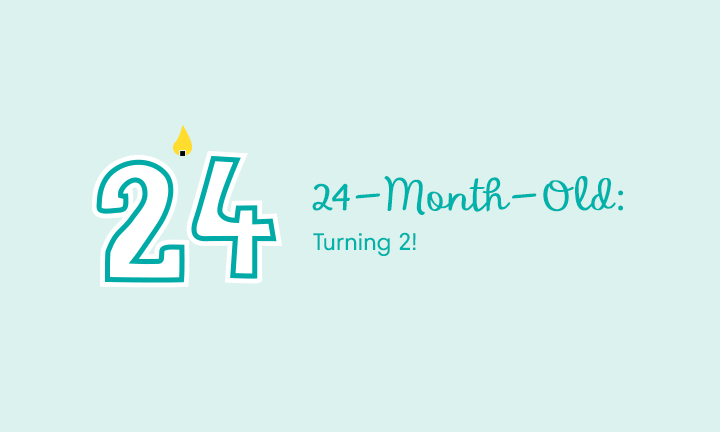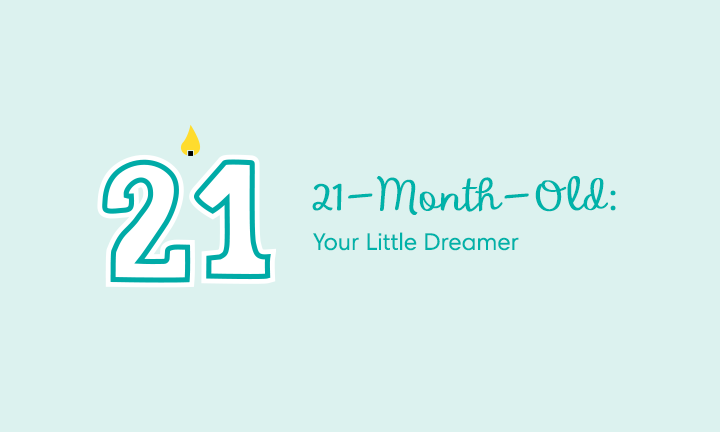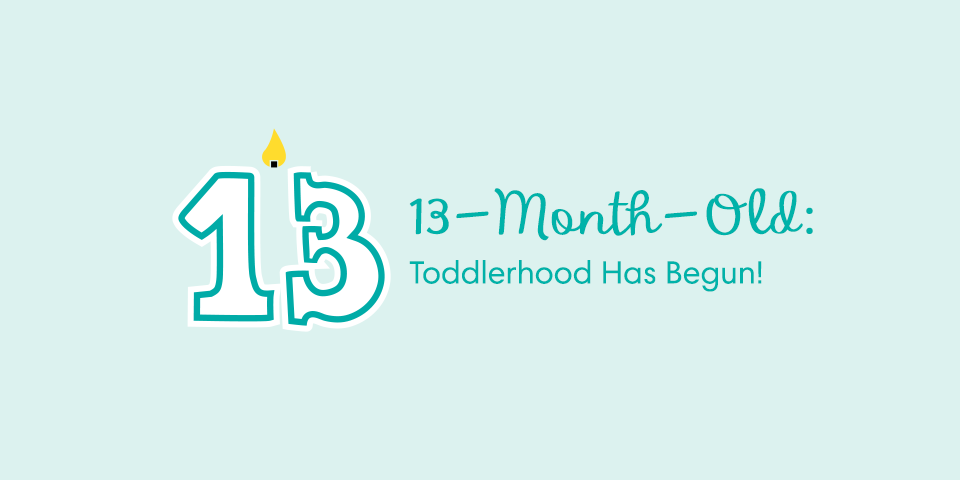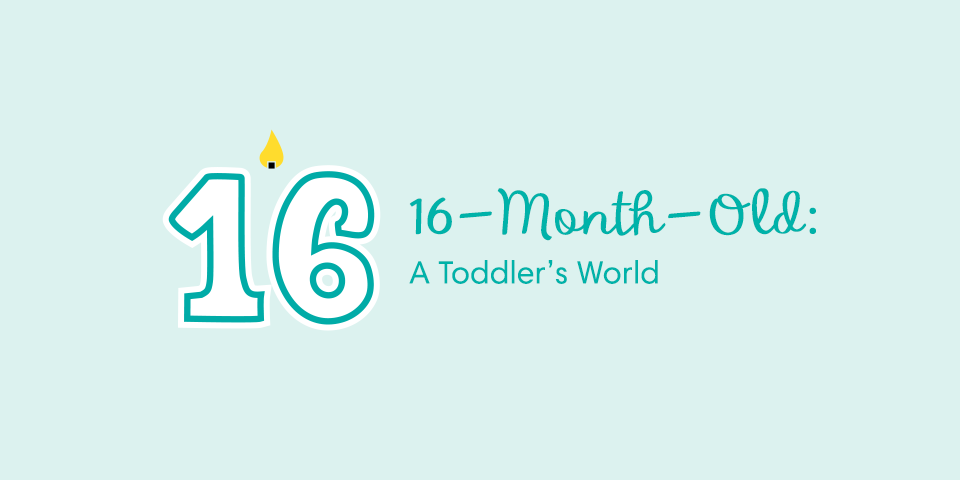Your 19-Month-Old’s Development and Milestones
Your 19-month-old toddler may have a lot to say these days, delighting you with their ever-expanding vocabulary. Some of those cute made-up words you heard a few weeks or months ago may soon be replaced with properly pronounced words that will melt your heart. Continue to nurture your child’s creativity, and take every opportunity to dance, sing, and play together. Your little one is growing up so quickly—it’s almost hard to keep up. Read on to discover what else this month might hold for you and your toddler.
Toddler Development Milestones
You may be amazed by what your toddler is doing and learning to do as the weeks and months go by. Appreciate their progress and achievements and try not to compare your toddler with others in terms of development or focus on “where ‘should’ my 19-month-old be developmentally.” Your child and every child is unique and may grow and learn at their own pace, reaching milestones at different times.
That said, here are some examples of things your little one may get up to at around 19 months:
Activities for Supporting Your 19-Month-Old Toddler’s Development
Here’s how you can support your 19-month-old’s development at home:
Mealtimes and Menus for Your 19-Month-Old
Don’t be surprised if your 19-month-old is picky and refuses to eat certain foods one minute, and then turns around and eats everything in sight the next. You might even find your toddler rejecting a food they happily ate just a few days ago.
Keep offering three small meals and at least two snacks per day. If your little one skips eating a meal or a snack, that’s OK. Your toddler’s diet will balance out over the span of a few days, as long as you provide various nutritious foods. Let your little one pick what and how much to eat, and make sure that they eat when sitting down, as eating while running around can lead to choking.
You can also use mealtimes to begin teaching good table manners. Teach your child that they shouldn’t eat with their mouth open, and to finish chewing and swallowing food before speaking.
Also, show them how to use a spoon and fork, and have them practice as much as possible. It’s OK if they fumble with these in the beginning and accidentally fling food everywhere—it’s a learning experience. With time they’ll master using these utensils.
Watch Out for Food Allergies
As your child tries all kinds of new foods, you may be concerned about food allergies developing, especially if they run in your family.
Luckily, food allergies are relatively rare in young children, occurring in less than 8 percent of children under 3 years of age. Still, it’s important to know what to look for, just in case. Here are some of the signs of a food allergy:
Foods that may cause allergic reactions include:
Sometimes children don’t have a true food allergy but instead have a food intolerance or food sensitivity, which is much more common. Many children have lactose intolerance, meaning that they have trouble digesting the natural sugars found in dairy products like milk. This can lead to symptoms such as bloating, stomachaches, and loose stools.
Consult your child’s healthcare provider if you suspect your child may have an allergy or an intolerance. The provider will be able to diagnose any issues by running tests. In some cases, you might be referred to an allergist, who may be able to help with a treatment plan.
Your 19-Month-Old Toddler’s Sleep Schedule
At 19 months old, your toddler needs about 12 to 14 hours of sleep per day, which includes at least one nap, too.
If your 19-month-old won’t sleep at night, awakens during the night, or experiences nightmares, it might help to review the bedtime routine.
Tips for Better Quality Sleep
Consider the following ideas to help your toddler have better quality sleep:
If sleep problems persist, be sure to reach out to your child’s healthcare provider for guidance.
To help your 19-month-old toddler better adjust to a bedtime routine, and to keep track of their sleep schedule, try the Smart Sleep Coach app by Pampers. Co-created by pediatricians and sleep experts, this app can help your child maintain a bedtime routine, help with sleep training, and help manage sleep regression if it arises.
A Day in the Life of Your 19-Month-Old Toddler
Wondering what a typical day might look like with your toddler? Here's an example of a daily routine you could follow for a 19-month-old:
Your Toddler’s Health and Safety: Planning Activities
Whether building with toy blocks or throwing a ball, play is crucial for your toddler. It’s through play that they will learn and develop in so many ways.
Each of your child’s movements, small and large, are steps toward developing better coordination, muscle control, balance, and much more. Encourage your toddler to stay active by being an active participant in their play, such as playing with a ball or playing catch with you.
Experts recommend that toddlers get at least
Of course, you’ll want to supervise all their activities. This may sound like a lot of movement, but a mix of structured and unstructured play along with rest in between all contributes to your child’s happy and healthy development.
Development Tips for Your Toddler This Month
Take advantage of these tips to help support your 19-month-old toddler’s development:
Items You’ll Need This Month
You might need the following baby gear items this month:
FAQS AT A GLANCE
Asking yourself “what ‘should’ I expect from my 19-month-old”? This month, your toddler may be able to do things like:
- Kick a ball
- Climb up and down furniture (so keep a watchful eye)
- Take some types of toys apart and put them back together again
- Repeat words they overhear in conversation.
Keep in mind that each toddler develops at a unique pace, and your little one may develop these skills a little earlier or later than this.
Your Life as a Parent: Scheduling “Me Time” and Creating Support Networks
Life can get super busy and chaotic when you’re raising a 19-month-old. To help cope with everything that comes your way, it’s important to look after yourself, too.
Caring for a toddler takes a lot of energy and can quickly tire you out. You’ll know when you’re tired, and so will your toddler. In these moments, it’s OK to reach out to see if your partner, a family member, or a babysitter can take over for an hour or two. Setting aside some “me time” to do something just for you will help you recharge your batteries.
To prevent feeling isolated, you could attend story time with your child at the local library or community center. You could also meet up with friends and their children at the playground or park—or get together with parents from your little one’s day care to share stories and tips.
Creating a network of supportive parents means you’ll have someone to talk to in a similar situation to yours, and this may help relieve some of the stress or anxiety you might be feeling as you juggle all of those parenting ups and downs.
Checklist for This Month
□ Learn some songs and rhymes. You may not know or remember all of these from your childhood, so we’ve collected some classic nursery rhymes and their corresponding hand movements. Your toddler will love chanting and singing these with you.
□ Start a scrapbook. This is a great time to start a scrapbook of your child if you haven’t already done so. Collect all the little mementos, including their scribbles, drawings, and photos, and put together a scrapbook you can keep adding to as they grow. Once they’re an adult, they will love receiving the scrapbook as a gift.
□ For even more information, sign up to get our regular emails:
How We Wrote This Article The information in this article is based on the expert advice found in trusted medical and government sources, such as the American Academy of Pediatrics and the American College of Obstetricians and Gynecologists. You can find a full list of sources used for this article below. The content on this page should not replace professional medical advice. Always consult medical professionals for full diagnosis and treatment.
- American Academy of Pediatrics. Caring for Your Baby and Young Child: Birth to Age 5, 7th ed. (New York: Bantam Books, 2019).
- HealthyChildren.org. “Anaphylaxis in Infants & Children.”
- HealthyChildren.org. “Discontinuing The Bottle .”
- HealthyChildren.org. “Food Allergies in Children.”
- HealthyChildren.org. “Lactose Intolerance in Infants & Children: Parent FAQs.”
- HealthyChildren.org. “Playing is How Toddlers Learn.”
- HealthyChildren.org. “The Power of Play—How Fun and Games Help Children Thrive.”
- Kids Health. “Feeding Your 1- to 2-Year-Old.”
- Kids Health. “Food Allergies.”
- Kids Health. “Media Use Guidelines for Babies and Toddlers.”
- Kids Health. “Learning, Play, and Your 8- to 12-Month-Old.”
- Kids Health. “Kids and Allergies.”
- Kids Health. “Your Child's Checkup: 15 Months.”
- Zero to Three. “18-24 Months: Your Child’s Development.”
